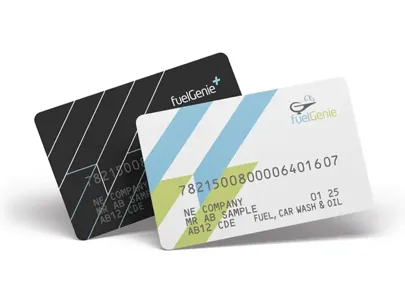Small changes bring big rewards
Tracking your employees' fuel usage is the easiest and quickest way to reduce fuel costs and expenses. Monitoring who is spending what, where and when leads to better management of how your team fill up – and allows your fleet managers to bring in cost-saving measures.
A system that lets office-based colleagues track and refine employee fuel usage, streamline the reimbursement process and eliminate the need for paper receipts can make an instant impact on your margins.
For any business reliant on transportation or sales for their daily operation, fuel costs quickly add up. By keeping a close eye on fuel expenses, businesses can spotlight areas for improvement, reduce unnecessary consumption and ultimately save money.
Sustainability matters as well as mileage
Tracking fuel usage can also contribute to heightened awareness of sustainability which allows small businesses and their customers to present themselves in a good light. If promoted well within the business it's good for morale too, as drivers – many with children – feel they are playing their part in a larger objective.
Understanding employee fuel usage
The best way for companies to get a clear view of their efficiency and effectiveness is by having sight of their employees' fuel expenses. Using a system that encourages drivers to find their best route and cheapest fuel by using an app and linked software is the first step to becoming more efficient and saving money.
Business fuel cards offer drivers access to great value prices at more than 1,350 Tesco, Morrisons and Sainsbury's forecourts along with 900 Shell petrol stations throughout the UK. Your business will benefit from fuel at an average of 3p per litre* less than the national forecourt average.
And because fuel prices fluctuate, it's even more important for drivers to take advantage of real-time access to fuel prices through an app which means they can make informed decisions about refuelling and choose the most cost-effective options closest to their route.
Where to start and why
Using a dedicated app or software streamlines the process of tracking fuel usage. These tools allow businesses to easily record and monitor fuel expenses, track mileage and generate reports for tax purposes or reimbursement.
The fuelGenie business fuel card empowers small businesses to identify key areas where costs can be reduced, such as through optimizing routes and training out less fuel-efficient driving habits. This not only saves money, but also valuable small business time. Additionally, the fuel card eliminates the need for manual record-keeping and reimbursement processes, freeing up your finance team to focus on more important tasks.

Check your cash flow
Managing fuel expenses helps with cash flow, especially for small businesses with limited financial resources. Tracking fuel usage identifies opportunities for cost savings and ensures that fuel expenses are properly accounted for in budgeting and financial planning.
Your fleet's fuel cards allows you to ensure accurate tracking of fuel expenses. There's no issues with compliance either because the platform helps firms comply with tax regulations and provide accurate documentation for audits or expense claims.
What are the keys to effective fuel tracking?
To effectively monitor usage, businesses need access to the following tools and resources:
- Invoices: Keeping track of fuel receipts and invoices is essential for accurate expense tracking. Using fuelGenie's digital platform and expense management software helps streamline this process.
- Mileage tracking: Businesses should have a system in place to track employee mileage for accurate calculation of fuel expenses. This can be done manually or through the use of mileage tracking apps or GPS devices.
- Fuel consumption reports: Having access to consumption reports can provide valuable insights into fuel usage patterns and help identify areas for instant improvement.
Easy monitoring of business fuel expenses and invoices
Start by establishing clear guidelines and policies for your fleet's fuel usage and reimbursement. Provide employees with fuelGenie cards to simplify the process and explain how the software and app will work with them to track fuel purchases, mileage, and expenses.
With the help of HMRC-approved VAT invoices, it's easy to monitor and manage expenses for effective cost control by regularly reviewing and analysing fuel consumption data to highlight any trends or areas for improvement.
Keep your drivers and admin teams happy
Fuel cards don't just play a crucial role in enhancing operational efficiency for small businesses. They also act as specific credit cards that get rid of the need for employees to use their personal cash or the company credit card at the forecourt.
This simplifies the payment process, reduces the administrative burden and improves cash flow management because managers can see what money is scheduled to leave the business and when.
The diesel and petrol game changer
How to get a business fuel card
All your drivers can be armed with fuelGenie cards and there are no hidden fees, surcharges… or even limits on the numbers you can have. So get the ball rolling on a more profitable business now. Find out more about how fuelGenie cards work and their benefits here.
Sign up to analyse detailed reports on your fleet that will help you fine tune your daily operation. Start optimising your fuel usage today for a more sustainable and profitable tomorrow.



